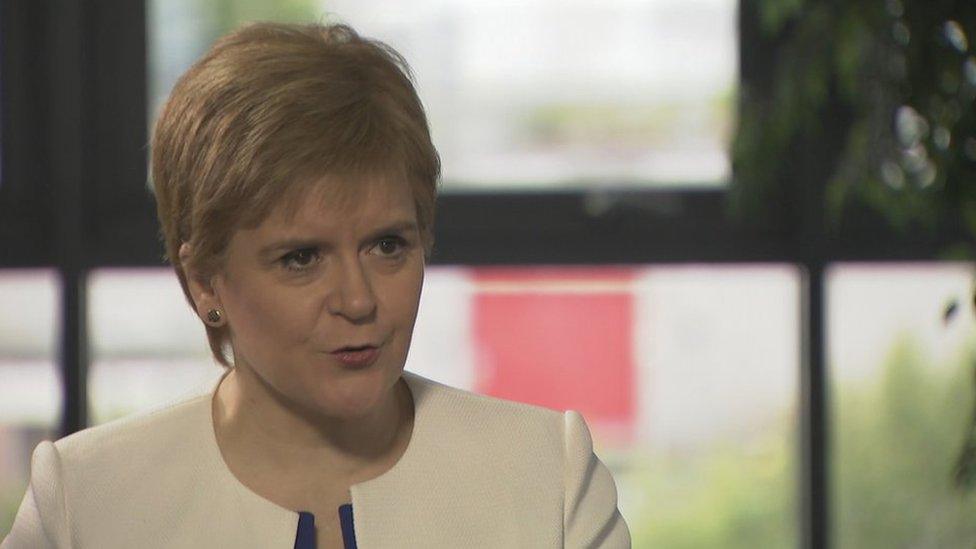Debating independent economics at the SNP conference
- Published
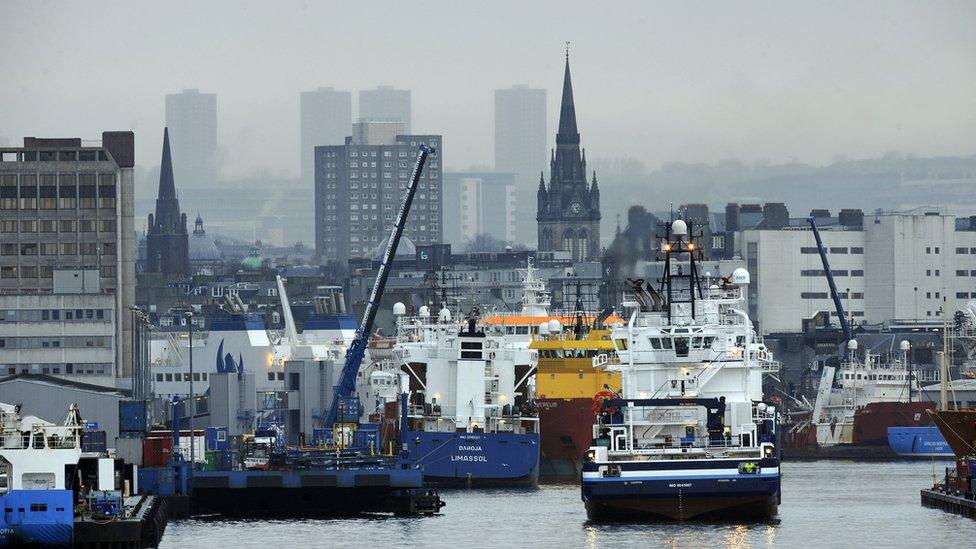
Aberdeen has had a rough time since the oil price plummeted
With the SNP "re-launching" the debate on independence with its growth commission report, what are delegates at the party's conference in Aberdeen saying about the proposals?

The economy can be a touchy subject in Aberdeen.
The granite city has been hurting badly since oil prices sank towards the end of 2014. Thousands of jobs have been lost. Beyond the silvery stonework, the shopfronts of Union Street are a pale shadow of what they were when I was growing up here.
And yet, delegates arrived for the SNP's "spring" conference in the city fresh from the publication of a growth commission report designed to underpin a debate on the economic arguments for independence.
Some external commentators have claimed to spy cracks in the nationalist base, prised open by the report's recommendations. The Conservatives paint the SNP as "a house divided" - somewhat ironically, given their own divisions over their own constitutional matter of choice.
So is there any evidence of this at the conference itself?
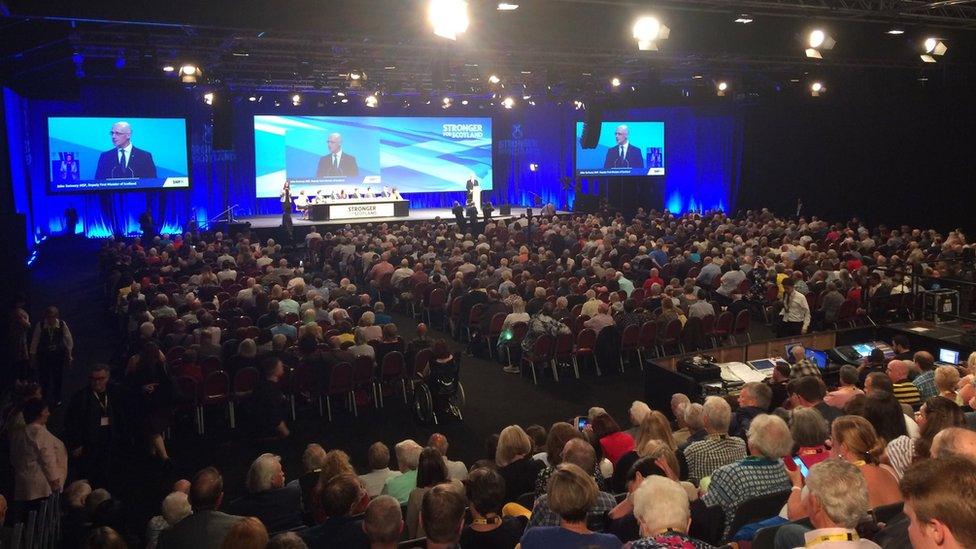
SNP politicians have been throwing plenty of red meat to delegates about independence
Well, there have been plenty of references to the growth commission, and the "healthy" debate it is apparently fuelling.
But the talk of independence has been much more general than specific. Plenty of red meat for the crowd - decked out in their SNP-yellow t-shirts and tote bags bearing the latest party slogan, "We Can" - but nothing on the nitty-gritty, things like currency and banking.
And why did newly minted deputy leader Keith Brown feel the need to stress to the gathered faithful that his boss is dedicated to the cause of independence?
The SNP leader, in favour of independence? Surely that's like setting out what precisely bears get up to in woods?
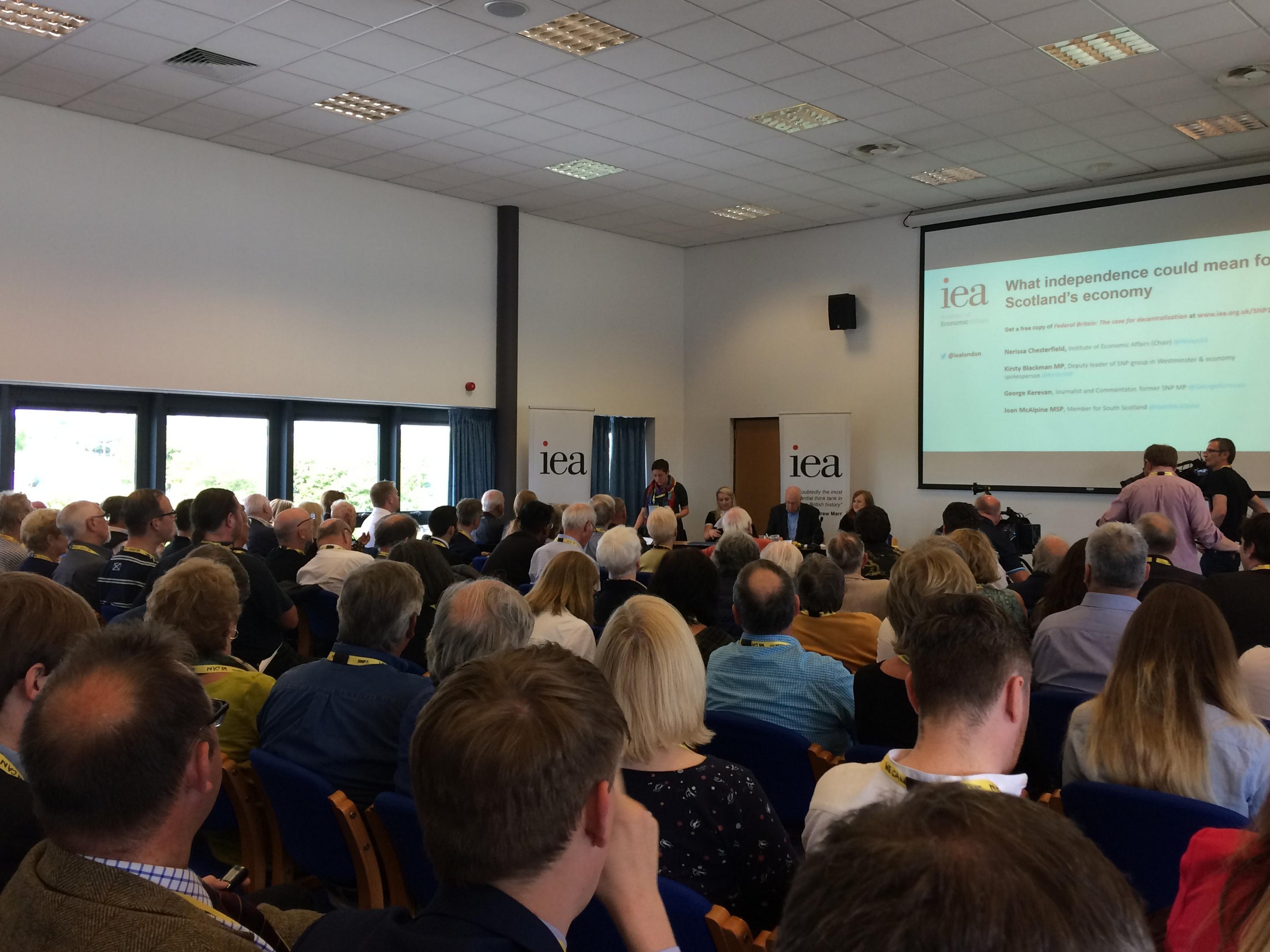
SNP delegates packed into a fringe event on the economy
Anyway, discussion of things like sterlingisation and deficit reduction on the main stage have been fleeting at best, with nothing approaching a formal debate or a vote. The party insists that its upcoming National Assemblies are the proper venues to discuss such matters.
But there was a huge turnout at a fringe event, hosted by the Institute of Economic Affairs, billed as a discussion of "what independence could mean for Scotland's economy".
After the seats filled up, people plonked themselves on the floor around the edges of the room. Still more opted to stand at the back, despite the glaring lack of the usual buffet provided as bait to draw in delegates - some opted to feign an interest in the housing debate in the room next door before sneaking back through, loaded down with triangular sandwiches and quiche.
Kirsty Blackman - an Aberdeen MP and deputy leader of the party's Westminster group - put forward the positive case for the growth commission, singling out proposals around immigration in particular for praise.
Small-C conservative
George Kerevan, a critical friend of the growth commission, won applause from the audience for pushing back somewhat, suggesting that the report was too "conservative" (with a decidedly small c) for his tastes.
He argued against proposals to keep the pound for a lengthy transition period, saying Scotland would need control of its own currency and banking regime.
But from there on in, the debate fractured.
People focused on their own particular areas of interest, questioning what independence might mean for, say, the Western Isles.
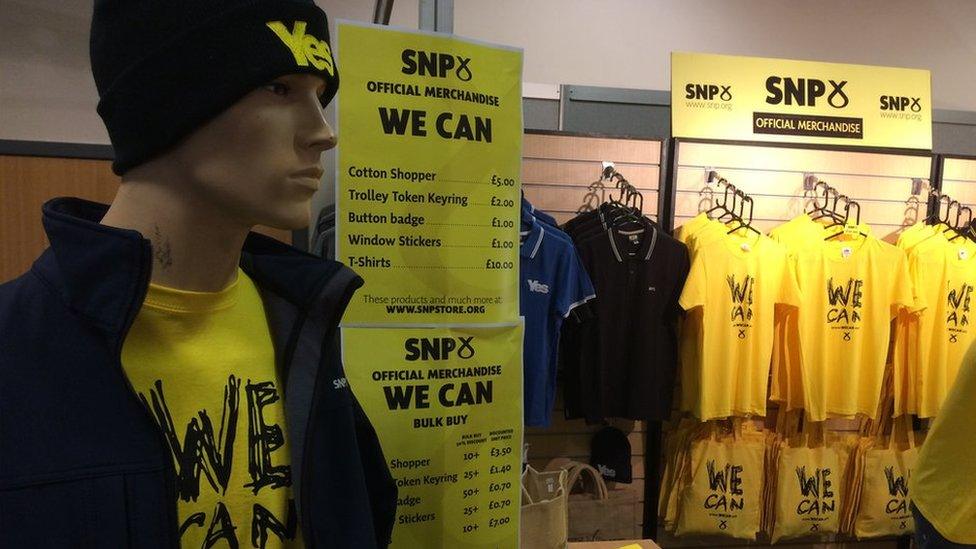
The SNP has set out its summer fashion range with a new slogan
One woman, a midwife, suggested paying parents, to stress that raising children is equally important for the nation's future as having a career.
Another flipped the immigration debate on its head by questioning how Scotland could stop the "brain drain" of young talent moving abroad - his son's oil industry job has taken him to Texas and then Newfoundland - "we've got to have independence so we can keep our best and brightest here".
Again belying local sentiment, there was hearty applause in the room for a man who stressed that "any new oil developments should be in the public sector", to stop money disappearing offshore.
There were references to Bernie Sanders, Philip Green and previous papers by the IEA - informed debate, but very scattergun.
Winning the argument
It's all very earnest and well-meaning, but while this discussion is happening on the fringes, it lacks focus. There's no momentum behind one currency position or another.
It's so broad that brows are even furrowed over whether it's all necessary.
Gerry Fisher - the SNP's resident conference contrarian and eternal nemesis of business convener Derek Mackay - questioned whether the economy should even be the core argument in the fight for independence.
Others questioned whether effectively putting a price on independence was taking away from other arguments - social justice, sovereignty and the like.
It fell to Ms Blackman to defend the numbers game. "It's not me that thinks the economic case is important - it's the people of Scotland," she said.
"We have to convince enough people to vote Yes to win independence, and we're not going to do that if we don't win the economic argument."
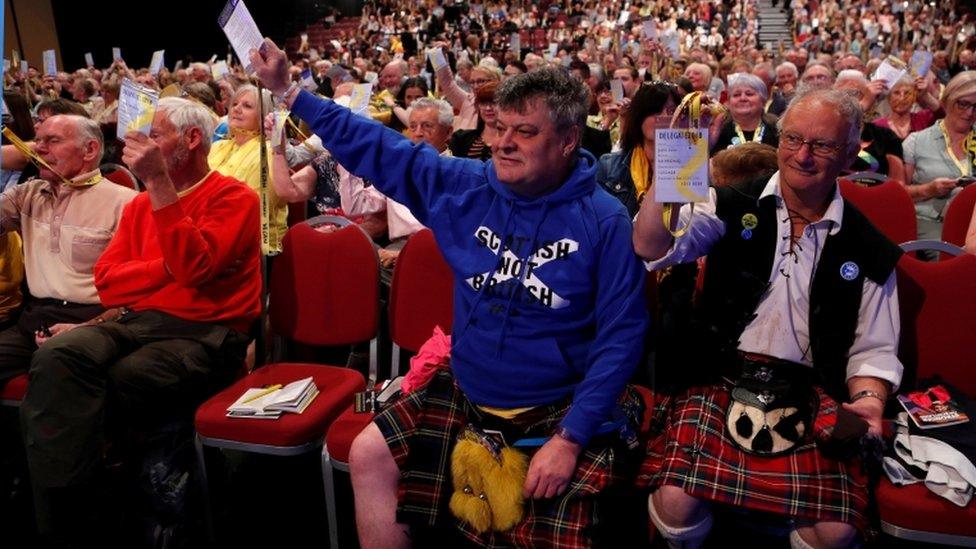
Despite claims of division, delegates have decidedly not been fighting among themselves
In truth, even away from the stage-managed main hall, the SNP conference is not really the place to look for people speaking out against the SNP. This is as unsurprising as Nicola Sturgeon's support for independence.
Whatever angst there might be in the wider Yes movement about some of the growth commission's recommendations, they are not bubbling over among delegates. Certainly not in public.
Ms Sturgeon professes herself unconcerned, in any case.
She said: "The fact there are people who support independence, who have different views about the kind of policies we would pursue in an independent Scotland, is not a bad thing - its just a feature of democracy.
"Its a good thing. I would much rather be leading a party that's got lots of vigorous and passionate debate about it than a moribund party."
- Published8 June 2018
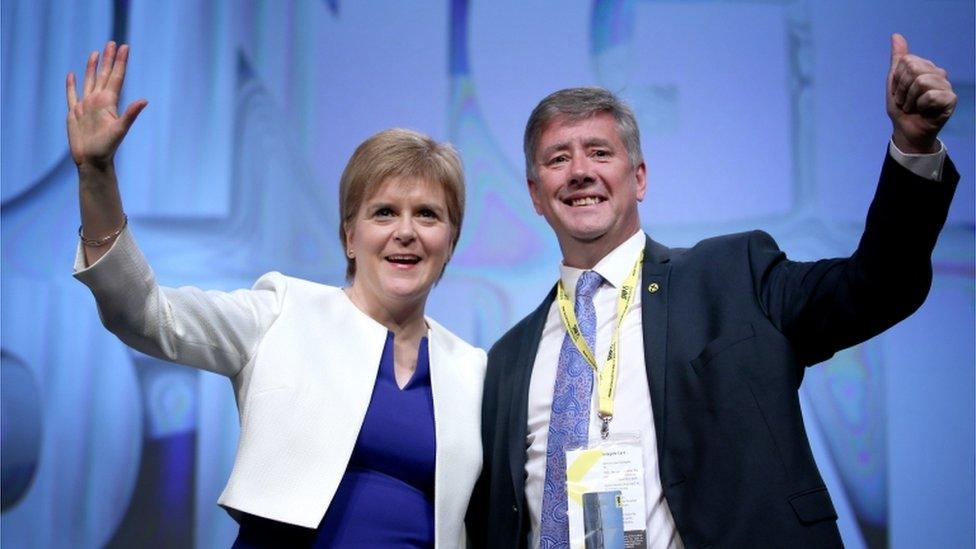
- Published8 June 2018
